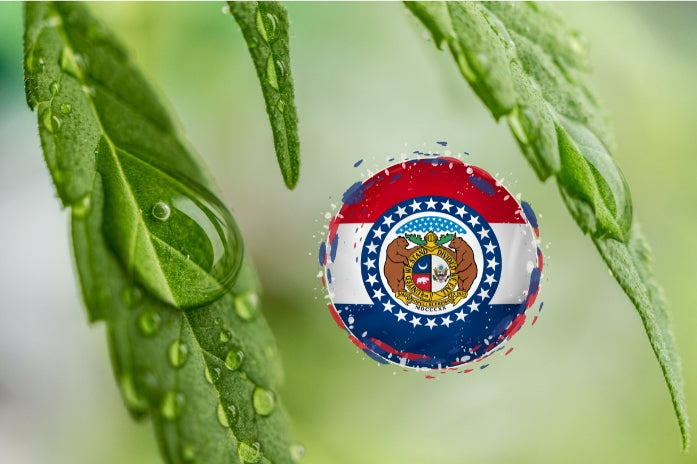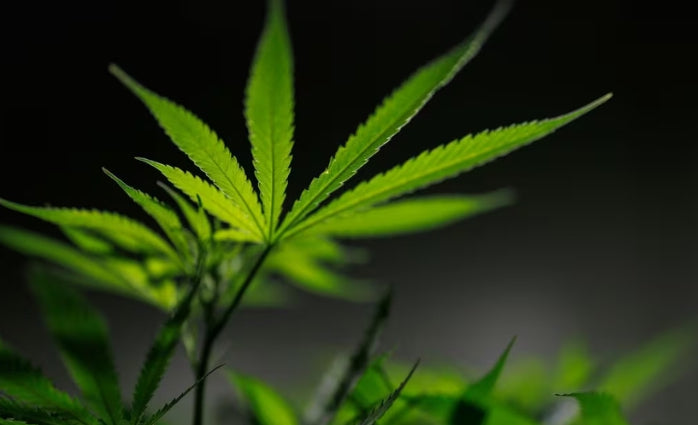Advocates for cannabis reform are beginning to see the value of hemp-derived THC-A flower as the best strategy for advancing the cause.Â

This era of human existence is one of the most exciting and terrifying times for those humans currently experiencing it. Technology and scientific advancements have literally made all existing knowledge and the entire universe accessible to every man, woman, and child on the planet.
However, the burden of all that information can be overwhelming for the average person. One of those wonderful and, at times, troubling arenas of knowledge is the controversial, polarizing, and legally confusing world of hemp and cannabis.
For starters, the terminology and actual chemistry associated with the two plants are among the most misunderstood aspects of the politically and economically galvanizing issue. Hemp and cannabis are two individual parts of the singular cannabis sativa plant. The only distinction between cannabis (or marijuana) and hemp lies in the concentrated levels of delta-9 THC contained within each.
As defined by the language of the 2018 Farm Bill, which legalized hemp and all of its downstream derivative products and uses, hemp is any part of the cannabis sativa plant containing less than 0.3% delta-9 THC. All other portions of the plant are considered cannabis. However, in practice, the two plants are almost indistinguishable.
This unique relationship between the sister plants should serve as an advantage for both now that hemp is federally legal. Regardless of whether the delta-9 THC comes from hemp or cannabis, the resulting intoxicating effects remain the same. As a result, the Intoxicating Hemp Derivatives (IHDs) market has exploded in the past five years, particularly in those states where cannabis is still illegal.
For consumers seeking the therapeutic and healing properties associated with marijuana in those states, IHDs and other hemp THC products like hemp-derived beverages are a godsend. These products not only provide users with the upside of cannabis, but they also provide aspiring entrepreneurs with a faster and less expensive path to entering the cannabis market. After all, hemp is cannabis, and cannabis is hemp.
One of the items emerging as a real game changer from the legal hemp-based product market is THC-A hemp flower. THCA, or tetrahydrocannabinolic acid–specifically Delta-9 THCA, is “a naturally occurring cannabinoid in hemp and cannabis plants. It is the acidic ‘precursor’ to THC and exists primarily in young, freshly harvested cultivars. THCA is non-psychoactive until it converts to THC through non-enzymatic reactions when exposed to heat. Known as decarboxylation, this process activates cannabis’ psychoactive properties.”
While it may seem like a technical chemical loophole, it is entirely legal because the product comes from the hemp portion of the cannabis sativa plant. This distinction means that THC-A hemp flower, hemp-derived THC beverages, and the myriad of other hemp products available on the legal market can serve as an excellent and lucrative alternative pathway for consumers and companies to gain entry into the cannabis industry without having to navigate the complex, expensive and treacherous federally illegal, state-regulated marijuana track.
In addition, hemp’s federal legal status also enables distributors to inject hemp and hemp-based product offerings into the ever-expanding global cannabis sector, something that marijuana cannot accomplish given its current federally illegal status.
However, there are specific risks involved in navigating the dubious legal path associated with THC-A hemp flower. In his article, “THCA Flower - Minimizing Your Risk,” Rod Kight, a world-renowned international cannabis lawyer, lays out the risks associated with the predominantly unknown and misunderstood hemp product, along with strategies for mitigating those risks.
The two main risks associated with THC-A flower include possessing or distributing THC-A flower in a state where it is illegal, and the method used to test it when seized or obtained via an undercover purchase by law enforcement. According to Kight, the first risk is easily avoided by simply not possessing or selling THC-A flower in states where it is illegal.
The second one is a little more complicated. Kight points out that most law enforcement crime labs use a decarboxylation method, such as gas chromatography (GC), to test the samples they receive. By its very nature, the test (using heat) converts the THC-A into the intoxicating delta-9 THC making the sample appear illegal.
A post-decarboxylation method, such as GC, is only required for pre-harvest hemp, not harvested material. Therefore, the legal argument against this type of hemp testing is relatively straightforward. As Kight explains, “Use of a decarboxylation testing method on harvested material converts lawful hemp to unlawful marijuana, an activity that amounts to evidence tampering. By using a testing method that decarboxylates the THCa, the crime lab literally creates the very molecule it is measuring.”
"Use of a decarboxylation testing method on harvested material converts lawful hemp to unlawful marijuana, an activity that amounts to evidence tampering. By using a testing method that decarboxylates the THCa, the crime lab literally creates the very molecule it is measuring.”
- Rod Kight, World-Renowned International Cannabis Lawyer
Other ways to mitigate the risks associated with possessing and consuming THC-A flower include:
- Do not smoke in an automobile or public.
- Transport THC-A flower products in the trunk of a car, preferably in a cool container.
- Do not consent to any voluntary searches.
- Keep all receipts of purchase.
While Kight’s expert knowledge and advice may seem somewhat unorthodox from a legal perspective, his take and strategies are spot-on for navigating the ever-complicated and financially wide-open hemp and cannabis markets. By understanding the true nature of THC-A and other IHDs, would-be hemp entrepreneurs can become a part of and help advance the overall cannabis reform movement.
Whether THC comes from hemp or cannabis, the result is the same. For industry experts and stakeholders like Kight, hemp is simply the path to least resistance. And that path has the potential to help millions achieve relief from pain and suffering as well as become one of the most diverse and economically imposing industries in world history.






































